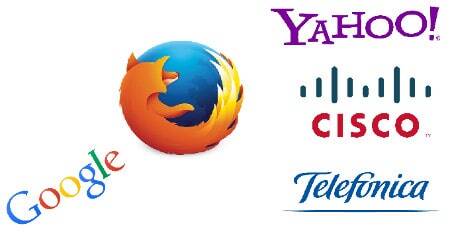Mozilla was the poster child of a non-for-profit company in technology.

They are best known for their Firefox browser, which was funded mostly by Google, who paid for being the default search. As long as Google didn’t have Chrome, life was good at Mozilla. But that has since changed.
For some reason, Mozilla decided that since most/all of its revenue comes from Google anyway, it might as well act like Google. Which is probably why in the past year we’ve seen Mozilla come out with Firefox OS (Android), Hello (Hangouts) and Matchstick (Chromecast). I was wondering how a company can spit into the well it drinks from. The answer came last week when Mozilla announced switching their default search from Google to Yahoo.
This brings Mozilla to 3 new benefactors instead of just relying on Google’s money. It theoretically reduce their risk, but it comes at a price.
1. Yahoo
Radio Free Mobile gives a good explanation to the reasons and ramifications of this move, so I won’t reiterate it here.
Out of all the other partners, this is the most reasonable choice Mozilla have made. There’s little downside here (besides worse search results, which will probably get unnoticed by most). I assume Yahoo paid enough to make it worthwhile for Mozilla.
2. Cisco
Cisco is an interesting choice for Mozilla. Mozilla chose to use Cisco’s OpenH264 codec. That after years of trying to resist adding H.264 to their browser. They also added it only to WebRTC and not to video streaming, which makes no sense (unless you try to unravel the legalities around this).
The end game for Cisco in this partnership? Protecting WebEx and its other video conferencing businesses. This is why its latest Project Squared (the new WebEx?) has been showcased on Firefox using H.264 and no transcoding.
For Mozilla? Having another party interested in its future.
3. Telefonica
Telefonica has been promoting and pushing Firefox OS for a long time now. They need it to maintain some kind of control/threat level over iPhone and Android – they need an operating system they can control.
Earlier this year, it became public that Mozilla is working with TokBox (acquired by Telefonica) to build a video calling service right into the browser itself. I’ve written my analysis on this cooperation. It doesn’t make sense in the context of a browser, but does make sense in a context of a mobile operating system.
How does that make Firefox open is an open question.
Why does it matter?
Mozilla now has multiple sources of revenue. Yahoo replaces Google, at the same or a higher price point, which is good for Mozilla. Cisco and Telefonica are probably paying for these projects and this collaboration – I see no other reason for Mozilla to do it otherwise.
The funny thing here is that this change probably puts Mozilla at a position where it has more pressure form its partners instead of less. My guess is that this is why Mozilla is making a big marketing effort lately to market themselves as a free, open, private choice. Somehow, that #ChooseIndependent hashtag they are using seems a bit ironic to me.
It will be interesting to see how this evolve.
